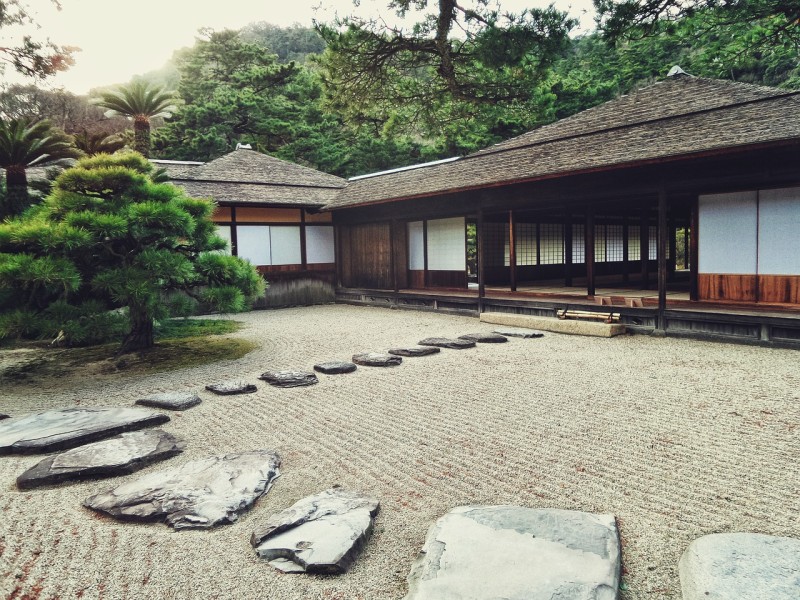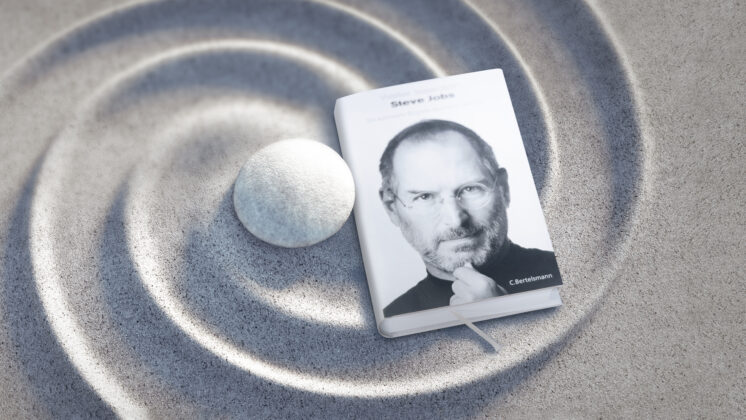Published 15 November 2023 ● Last Updated on 7 December 2023
The Japanese have long embraced minimalism as a way of life, and it’s a philosophy that extends far beyond decluttering homes. It’s a mindset: an approach to life that celebrates simplicity, balance, and the removal of excess.

Minimalism in Japan finds its essence in Zen aesthetics. Zen gardens, with their meticulously raked gravel and strategically placed rocks, exemplify the simplicity and tranquility at the core of this philosophy. This design ethos extends to Japanese architecture and interior spaces, emphasizing clean lines, uncluttered environments, and a focus on natural materials. These spaces encourage a sense of calm, fostering a deep appreciation for simplicity. In the words of a Japanese scholar , living a life of simplicity works “like the ticking of the clock, the waves of the ocean, the rays of the sun.”
What is minimalism?
In a world where rampant consumerism is depleting natural resources and contributing to climate change, the Japanese minimalist approach is more relevant than ever. The concept of minimalism is fundamentally about reducing consumption. It champions quality over quantity, encouraging people to invest in well-crafted, long-lasting items rather than disposable products that harm the environment. By purchasing less and discarding less, they reduce their collective environmental footprint.
Additionally, minimalism also emphasizes resource efficiency. Smaller living spaces are common in Japan, which leads to lower energy consumption for heating and cooling. Furthermore, compact, fuel-efficient cars are favored over gas-guzzlers. These choices contribute significantly to the reduction of carbon footprint.
Waste reduction is another key tenet of Japanese minimalism. The culture places a strong emphasis on recycling and proper waste disposal. People are accustomed to sorting their waste, and this daily practice significantly reduces the amount of waste in landfills. It’s an eco-conscious approach that promotes the responsible management of resources.
Minimalism in Business
Japan’s principles of minimalism have profoundly influenced various industries globally. In architecture and design, the minimalist approach focuses on functionality, sustainability, and aesthetic simplicity. Architects and designers worldwide are adopting this ethos, utilizing natural materials, creating efficient spaces, and emphasizing sustainable practices in construction.
In the automotive industry, these principles have spurred the development of eco-friendly vehicles. Hybrid and electric cars, inspired by the Japanese commitment to sustainability, embody the ethos of minimal environmental impact while offering innovative and functional designs.
The poster boy of all businesses, the technology sector, has seen a shift influenced by Japanese minimalism as well. Companies are rethinking product design, focusing on longevity, repairability, and eco-friendliness. Smartphones designed for longevity and ease of repair, and the push toward modular designs in electronics, are examples of how the principles of minimalism are shaping the tech industry for a more sustainable future.

The concept of minimalism serves as a guiding light toward conscious living, sustainability, and eco-friendliness. Its principles have permeated various industries and technological advancements, advocating simplicity, sustainability, and a profound respect for resources.
Minimalism and then some
As we navigate a world which desperately needs us to dodge the shiny attractiveness of consumerism and embrace the essence of minimalism, here are a few similar principles that originated in Japan and can be effortlessly applied to our journey towards more sustainable lives:
Mottainai (勿体無い): This principle encourages the avoidance of waste and emphasizes the value of resources. Applying “Mottainai” in daily life means being mindful of consumption, reducing unnecessary waste, reusing items, and recycling wherever possible. It focuses on cherishing and making the most of what you have, reducing the strain on the environment by minimizing unnecessary consumption.

Kanso (簡素): The concept of “Kanso” underscores simplicity and elimination of the unnecessary. Embracing “Kanso” promotes a minimalist approach to lifestyle, design, and production. By removing superfluous elements and simplifying processes, products, and designs, it reduces environmental impact and wastage in various industries.

Wabi-Sabi (侘寂): “Wabi-Sabi” celebrates imperfection, impermanence, and the beauty found in simplicity. This principle encourages appreciation for the natural aging and wearing of items, promoting the reuse and repair of objects rather than seeking constant replacements. It inspires the creation of products designed for durability, repairability, and adaptability, ultimately reducing the need for excessive consumption.
Ma (間): The concept of “Ma” focuses on the beauty of empty space and pauses. In the context of sustainability, it promotes the idea of decluttering and reducing excess, whether physical or digital. Creating space allows for a more intentional use of resources and fosters a calm and mindful lifestyle, aligning with a reduced environmental footprint.
Shizen (自然): “Shizen” emphasizes harmony with nature. It encourages a deep respect for the environment and a more natural way of living. This principle influences sustainable choices by advocating for eco-friendly materials, energy-efficient practices, and a mindful connection with the natural world, aiming to minimize adverse impacts on the planet.
Related articles:
Less is more | The why and how of embracing fashion minimalism



0 Comments